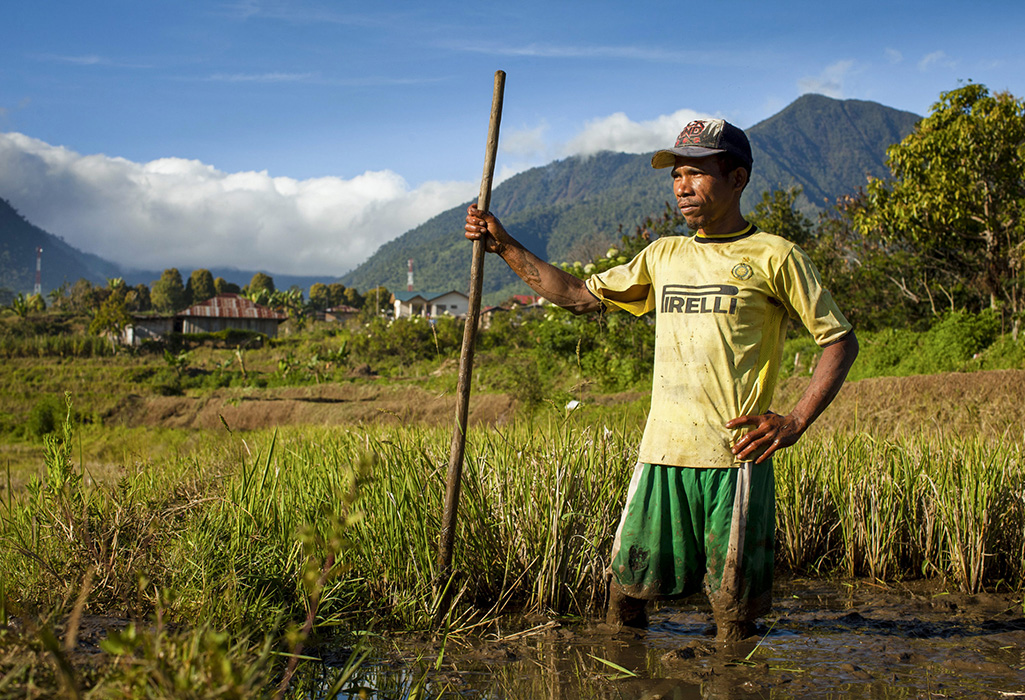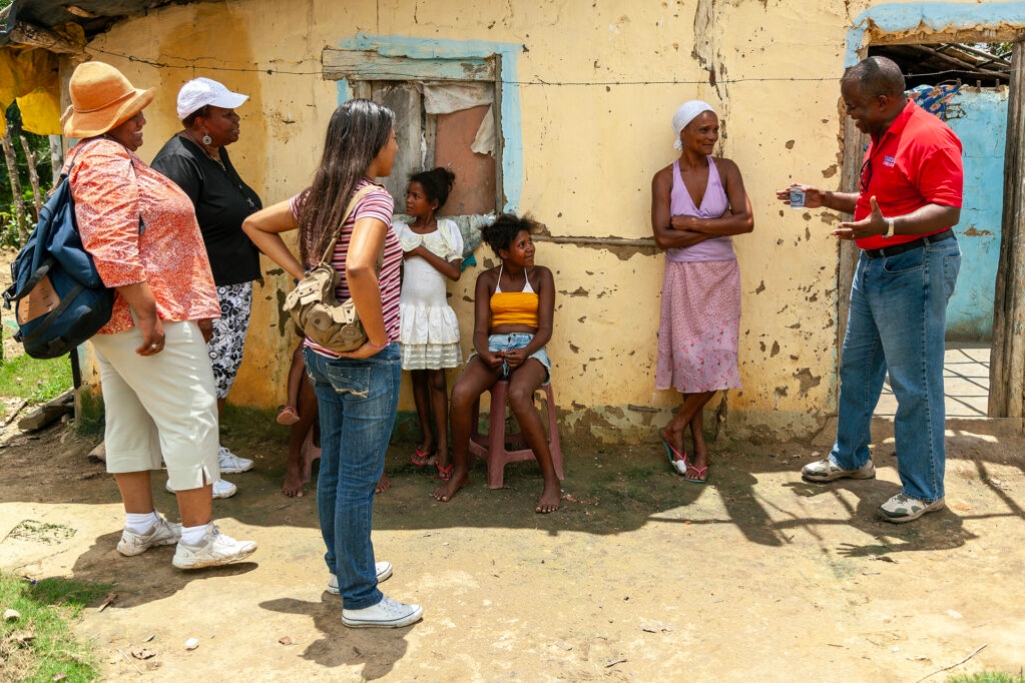
Itinerant Manggarai field workers take the first step in preparing a field for planting rice on the island of Flores in eastern Indonesia. They will pull the old rice plants and bury them in the mud where the plants will help fertilize the soil. Two weeks later, the field will be ready for planting a fresh crop of rice.
RICHMOND, Va. – Johnny and Bonita Kron had been serving as missionaries in South Asia for about 10 years when she needed emergency medical care, including being airlifted to another region. In retrospect, Johnny Kron says his wife is still alive because Southern Baptists provide for their missionaries.
“My wife, in her role as a medical coordinator, needed to escort someone back to the States, so she flew back to the U.S. for a quick turnaround. She literally got back on the same plane that she got off of,” Kron told Baptist Press of an episode from about five years ago.
Bonita could have stayed in the U.S. for a visit, but a major holiday was approaching in South Asia, and she wanted to return to the field for it.
“She flew back and made it home safely,” Kron said. “That next morning, around 2 a.m., she woke up in incredible pain. We took her immediately to the clinic.”
When the clinic in the small South Asian city was unable to help, Bonita was transferred to a national hospital, Kron said.
“Basically, what we discovered was that she had an intestinal perforation, and because of that she was going toxic very quickly. Where we were, they did not have the technology to repair that,” he said. “It’s not a very difficult repair in the U.S. or even in a major city, but they didn’t have the ability there.”
The doctor told Kron they could attempt surgery but there was a high risk she would lose her life. “My wife, being a nurse, knew that was not the right plan,” Kron said.
As a medical coordinator for the International Mission Board, Bonita was the one accustomed to quick thinking in medical crises on behalf of other missionaries. When it was her in trouble, Kron, at the time a church planter in an unreached people group, didn’t know what to do. He called her supervisors, and things moved quickly.
The first plan was to airlift Bonita to the larger country in the region, but because of the holiday they were unable to get permission to send her there.
“Instead, they airlifted her to the Middle East,” Kron said. “When we arrived, it was all set up where an ambulance met us on the tarmac and they took her to a rather large hospital, and she was rushed into surgery.”
Doctors repaired the perforation, and Bonita remained in intensive care for at least a week as they struggled to reduce the infection. “Finally, they did get it down, and we had to stay there for about a month as she continued to recover,” Kron said.
Now based at the IMB’s Richmond, Va., office, Kron speaks regularly with workers preparing to move overseas. He tells them his story is a picture of how the Cooperative Program (CP) allows Southern Baptists to take care of their missionaries.
“Obviously, I wouldn’t have known how to arrange everything, and I wouldn’t have had the funds for a medical evacuation,” Kron said, “but because the IMB has medical coordinators and logistics coordinators that can handle those kinds of things, my wife is still alive today.”
In addition to arranging medical care on the field, IMB pays for such care from gifts received through the Cooperative Program and the Lottie Moon Christmas Offering for International Missions.
The Krons have four children, and at the time of their mother’s medical emergency, two were in college in the U.S. and two were with their parents in South Asia. Fellow IMB workers in the region were able to take care of the younger two children, including one who was adopted and was having separation anxiety.
“Our teammates on the field have always been like family, sometimes closer than family,” Kron said. “They immediately stepped in and said, ‘You don’t have to worry about him. We’ve got him covered. We’ll make sure he has no stress during this time, and you can concentrate on getting your wife better.’”
Kron said having that support structure as well as the prayers of the 40,000 churches of the Southern Baptist Convention “is huge to keep your eyes focused on the Lord during that time.
“You always say that your ‘yes’ is on the table, that you’re willing to die for the advance of the gospel, and that was certainly true,” Kron said. “But I don’t know that I expected something like this to happen. I’d say before going to the field I really didn’t know how much support missionaries get from our organization and from the Convention.”
Such care, Kron said, is “very reassuring” to missionaries and to their families who remain in the U.S., watching and praying from a distance. He has interacted with various mission-sending organizations and knows that self-funded missionaries wouldn’t be able to receive the kind of life-saving intervention his wife received.
“I always tell people one of the great things about the Cooperative Program is that you devote all of your time to reaching the lost, to seeing churches started among unreached people,” Kron said. “The Cooperative Program frees you up from having to personally raise funds that allow you to be there. There’s a lot of stress relieved.”
Stephen Haber, IMB’s senior director of field human resources, told BP, “The International Mission Board takes amazing care of our missionaries.”
Medical coordinators are up to date on local doctors, hospitals, medications, laws and requirements, “ensuring that each family has the access to the medical care that they need,” Haber said.
“In addition to our field medical coordinators, at our home offices in Richmond, we have doctors, nurses and other medical professionals who provide medical consultations, run our stateside clinic and maintain our electronic health records system,” Haber said. “Overall, we are truly blessed to have an organization that takes such great care of our people.”
Kron expressed gratitude for Southern Baptists’ faithful giving through CP.
“My kids’ mother is still here because the Cooperative Program allowed her to be safe,” he said.
(EDITOR’S NOTE – Erin Roach is a contributing writer for the International Mission Board.)


